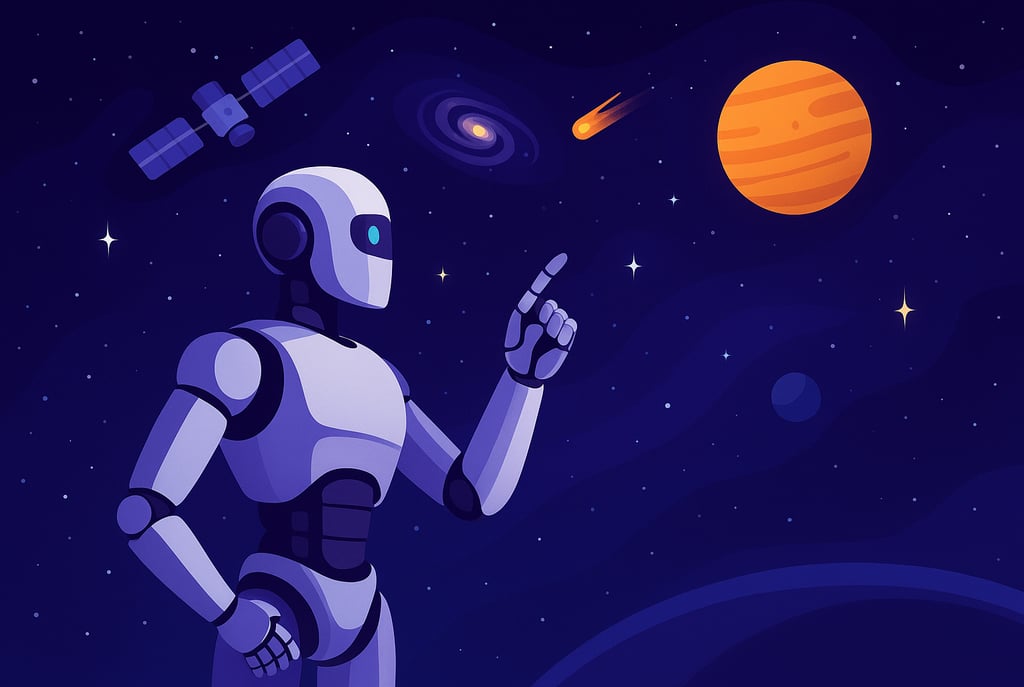AI in Space Exploration: How Machines Are Helping Us Reach the Stars
Space exploration has always been humanity’s boldest adventure. Now, with artificial intelligence as our co-pilot, we’re venturing farther, faster, and smarter than ever before. From analyzing cosmic data to piloting rovers, AI is redefining how we understand the universe.


🛰️ AI as the New Astronaut Assistant
Astronauts juggle countless tasks in space, from scientific experiments to maintaining spacecraft systems. AI-powered assistants can process massive amounts of data, provide real-time troubleshooting, and even detect potential equipment failures before they happen. Think of them as mission copilots, ensuring safety and efficiency.
🔭 Analyzing the Universe
Modern telescopes generate more data than humans could ever manually analyze. AI steps in to sift through this cosmic ocean—spotting new exoplanets, identifying distant galaxies, and uncovering cosmic events like supernovas. Without AI, many discoveries would remain hidden in the data.
🤖 AI on Other Worlds
Rovers like NASA’s Perseverance on Mars already use AI to navigate the planet’s rocky terrain. Instead of waiting for instructions from Earth (which can take minutes to arrive), they make independent decisions—choosing paths, avoiding obstacles, and carrying out tasks autonomously.
🌍 Why This Matters for Us
Space exploration with AI isn’t just about discovering alien worlds. The same technologies used to analyze Martian rocks or cosmic radiation also help improve Earth-based science—from climate modeling to medical research. By reaching for the stars, we improve life back home.
✨ Final Thoughts
AI is becoming the ultimate partner in our journey to the stars. It doesn’t replace human curiosity or ambition—it empowers it. With AI as our navigator, the cosmos is no longer a distant dream but an achievable reality.